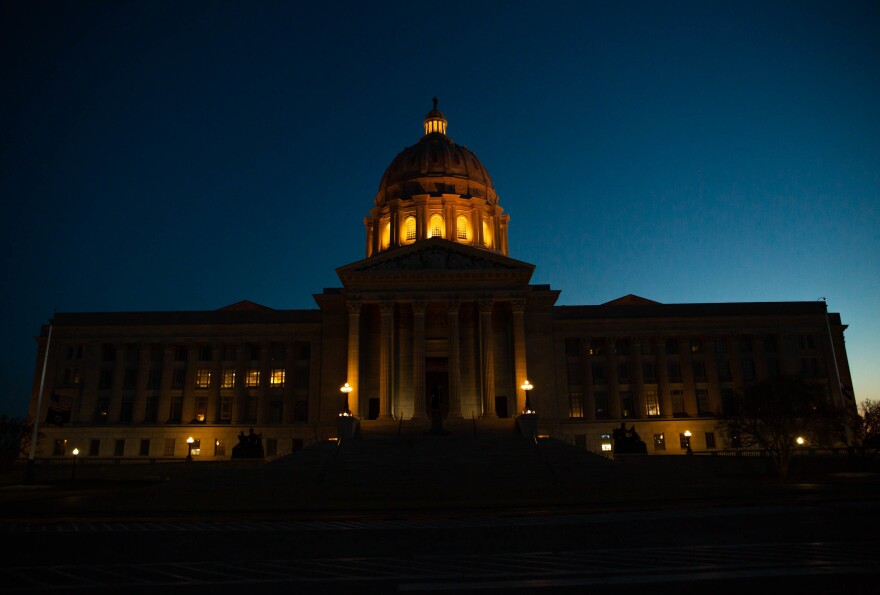After the tragic St. Louis school shooting on Oct. 24 where a shooter killed a 15-year-old student and a health teacher, Missouri Democrats vowed to push legislation establishing stricter gun safety regulations.
On Thursday — the first day legislators could pre-file bills — state Rep. David Smith, D-Columbia, filed legislation to prohibit anyone under 20 from purchasing semi-automatic or automatic weapons.
“While we cannot stop all gun violence we can mitigate it, and one way we can do that is by limiting the sale of lethal weapons to those who may not yet have the developmental stability to use them responsibly,” Smith said in a press release Thursday.
Rep. Peter Merideth, D-St. Louis, also proposed a constitutional amendment to require background checks for all firearm transfers of ownership and a permit to conceal carry a firearm.
Still likely to come is legislation to establish extreme risk protection orders — or red flag laws — allowing judges to temporarily separate at-risk individuals from their firearms.
Nine days before the shooting at Central Visual and Performing Arts High School, the mother of the shooter, 19-year-old Orlando Harris, asked police to take the gun away from him because she was concerned about his mental state. Police said state law didn’t give them the authority to take Harris’ weapon.
“The state of Missouri does not have a red flag law,” St. Louis Police Sgt. Charles Wall said in a statement to the media in October. “That means SLMPD officers did not have clear authority to temporarily seize the rifle when they responded to the suspect’s home when called by the suspect’s mother on 10/15/22.”
Republicans, who hold supermajorities in both the House and Senate, have largely panned these proposals as an infringement on Second Amendment rights.
Gov. Mike Parson said tougher gun laws won’t stop gun violence.
“You got a criminal that committed a criminal act, you know, and all the laws in the world are not going to stop those things,” Parson said in the shooting’s aftermath.
Republican State Rep. Chris Dinkins, of Lesterville, filed a bill to expand the school protection officer program, which offers security training resources for teachers or administrators who want to carry a firearm in school in a security capacity. Dinkins’ bill would expand the 2014 school protection officer law and allow school districts to open up the program to any school personnel.
A separate 2009 law gave school officials and school boards the authority to decide if a person with a concealed carry permit could carry a gun on school campuses.
The protection officer program largely focused on helping rural schools that don’t have access to school security guards and where it can take law enforcement 45 minutes to respond to a call, supporters said.
Smith said the lethal shootings in Buffalo, New York and Uvalde, Texas, in May 2022 contributed to his decision to file his legislation. The shooters in Buffalo and Uvalde were both 18 years old when they perpetrated those shootings, and they both legally purchased the firearms they used to kill 10 and 21 people, respectively.
His bill would make it a class A misdemeanor for anyone under the age of 20 to buy or lease a semi-automatic or automatic firearm, as well as for those who sell or lease a semi-automatic or automatic firearm to someone under 20.
“In the past few months, we have seen truly horrific acts of violence committed by deeply mentally unstable teenagers using firearms they legally purchased,” Smith said. “Had this bill been in place, the mass shooter who terrorized Central Visual and Performing Arts High School in St. Louis in October would not have been able to obtain the firearm he used to kill a student and a teacher.”
This story was originally published in the Missouri Independent.




